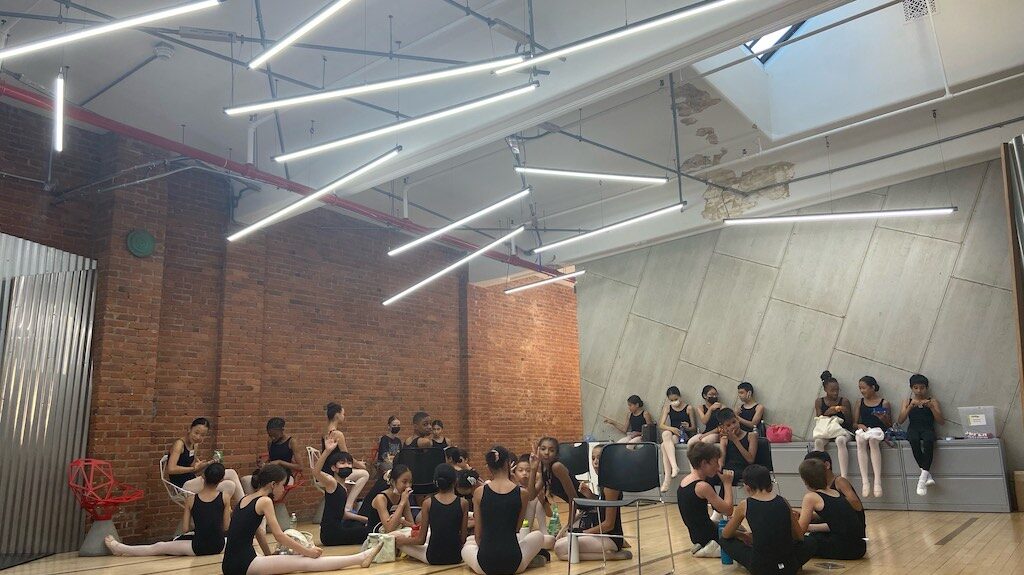Arts & Entertainment
At Ballet Tech, the first Black leader
By Mailynn Arias
If dance in America is a pyramid, said Dionne Figgins, 42, a Black woman, White-dominated ballet remains at the top.
But, added Figgins, speaking generally about dancers for whom ballet is the foundation and about ballet itself, “The ballerina can never do the African step.”
Ballet is “not better,” Figgins continued, ”it’s just different.”
With that belief, Figgins, the first Black artistic director for dance at New York City’s only public school for aspiring dancers, has added such courses as Afro beat, jazz, tap and hip hop to a menu that used to only include ballet and older forms of modern dance.
“I’m trying to actually knock down those barriers between the styles and just say [it’s all] dance,” said Figgins, a former member of the Dance Theatre of Harlem and Complexions Contemporary Ballet, who also was in the original Broadway casts of “Motown,” “Memphis” and “Hot Feet.”
“We put a limitation on what dance can do when we start to decide which dance styles are better than the other or which ones have more value, when really they all have value, they’re just different.” Figgins said.
Figgins was appointed in 2021 to lead 44-year-old Ballet Tech, which is near Union Square in Manhattan and allows fourth- through eighth-graders from all five boroughs of New York City to enroll. In 2022, 74% of those 142 students were of color and mainly Latinx and Asian.
Figgins said she wants students to showcase their backgrounds as they develop as dancers. She wants them to embrace who they are.
When she was 12, she traveled to Cannes, France with her dance teacher and 16 other Black girls from Washington, D.C. — called Chocolate City, at the time, because it was predominantly Black — to study at a dance school started by the famous ballerina Rosella Hightower.
“I significantly remembered being different at twelve,” Figgins said.
Figgins never realized the lack of diversity in the industry until her performance in France. She did not feel uncomfortable, just different. That’s partly because ballet’s strict rules didn’t always leave room for people like her to showcase their talent.
“If you don’t follow them you find yourself on the outside,” she said.
Figgins wants her students to never feel like outsiders. She wants them to know there’s a place for them in dance. She wants them to someday earn a living performing their art.
Sitting in her eighth-floor corner office at Ballet Tech, as she talked about her hopes for those aspiring dancers, her eyes welled with tears. She took a deep breath. For five seconds, she paused.
“Dance is a silent art form,” Figgins said. “There’s a certain freedom in that because, in life, there’s so many things that just can’t be said.”
Some might find it odd that she is leading Ballet Tech, she said, precisely because she is female and Black. ”I don’t look like the most viable candidate according to what has been in these spaces … and for the board to have the courage to hire me … ”
She pauses, again.
“I speak it away,” she said, of the forces and ideas that oppose who she is as a Black dancer in charge of raising coming generations of dancers. “That makes people uncomfortable sometimes.”
Ballet Tech alumnae Sofia Villa, 19, a teaching assistant for summer 2022 classes, said that Figgins ”really makes an effort to create a safe space for the students. She’s a representation that a lot of these students need.”


